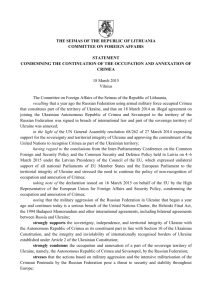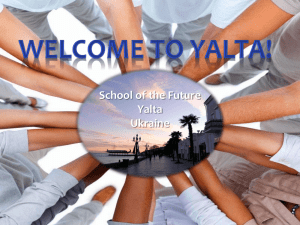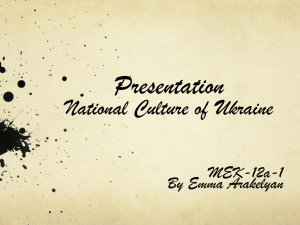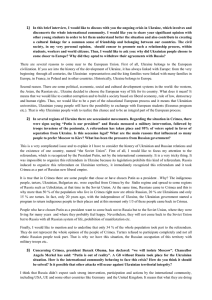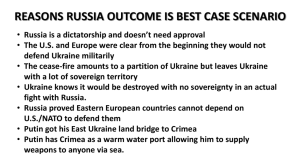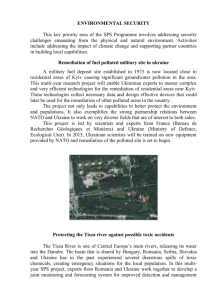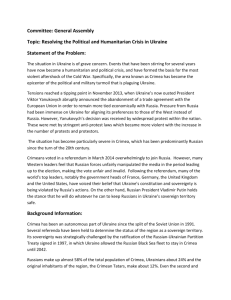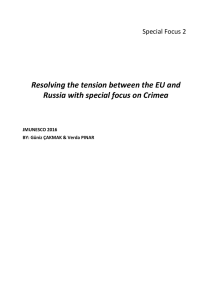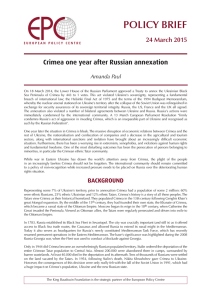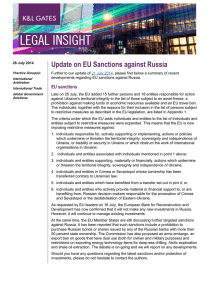Document
advertisement
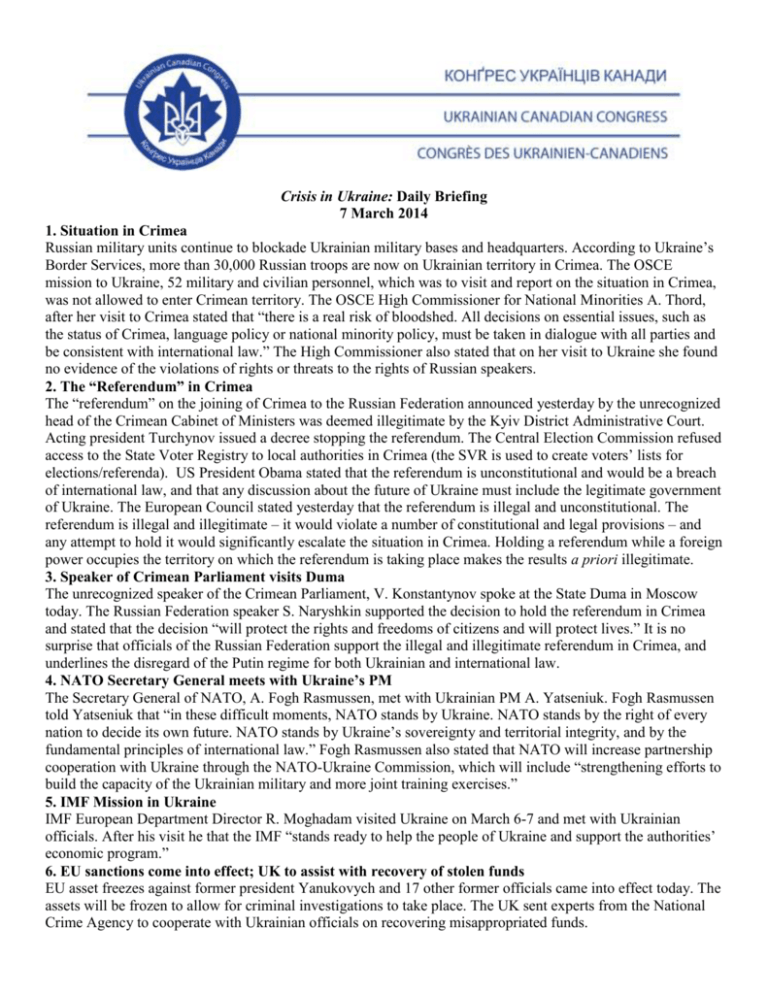
Crisis in Ukraine: Daily Briefing 7 March 2014 1. Situation in Crimea Russian military units continue to blockade Ukrainian military bases and headquarters. According to Ukraine’s Border Services, more than 30,000 Russian troops are now on Ukrainian territory in Crimea. The OSCE mission to Ukraine, 52 military and civilian personnel, which was to visit and report on the situation in Crimea, was not allowed to enter Crimean territory. The OSCE High Commissioner for National Minorities A. Thord, after her visit to Crimea stated that “there is a real risk of bloodshed. All decisions on essential issues, such as the status of Crimea, language policy or national minority policy, must be taken in dialogue with all parties and be consistent with international law.” The High Commissioner also stated that on her visit to Ukraine she found no evidence of the violations of rights or threats to the rights of Russian speakers. 2. The “Referendum” in Crimea The “referendum” on the joining of Crimea to the Russian Federation announced yesterday by the unrecognized head of the Crimean Cabinet of Ministers was deemed illegitimate by the Kyiv District Administrative Court. Acting president Turchynov issued a decree stopping the referendum. The Central Election Commission refused access to the State Voter Registry to local authorities in Crimea (the SVR is used to create voters’ lists for elections/referenda). US President Obama stated that the referendum is unconstitutional and would be a breach of international law, and that any discussion about the future of Ukraine must include the legitimate government of Ukraine. The European Council stated yesterday that the referendum is illegal and unconstitutional. The referendum is illegal and illegitimate – it would violate a number of constitutional and legal provisions – and any attempt to hold it would significantly escalate the situation in Crimea. Holding a referendum while a foreign power occupies the territory on which the referendum is taking place makes the results a priori illegitimate. 3. Speaker of Crimean Parliament visits Duma The unrecognized speaker of the Crimean Parliament, V. Konstantynov spoke at the State Duma in Moscow today. The Russian Federation speaker S. Naryshkin supported the decision to hold the referendum in Crimea and stated that the decision “will protect the rights and freedoms of citizens and will protect lives.” It is no surprise that officials of the Russian Federation support the illegal and illegitimate referendum in Crimea, and underlines the disregard of the Putin regime for both Ukrainian and international law. 4. NATO Secretary General meets with Ukraine’s PM The Secretary General of NATO, A. Fogh Rasmussen, met with Ukrainian PM A. Yatseniuk. Fogh Rasmussen told Yatseniuk that “in these difficult moments, NATO stands by Ukraine. NATO stands by the right of every nation to decide its own future. NATO stands by Ukraine’s sovereignty and territorial integrity, and by the fundamental principles of international law.” Fogh Rasmussen also stated that NATO will increase partnership cooperation with Ukraine through the NATO-Ukraine Commission, which will include “strengthening efforts to build the capacity of the Ukrainian military and more joint training exercises.” 5. IMF Mission in Ukraine IMF European Department Director R. Moghadam visited Ukraine on March 6-7 and met with Ukrainian officials. After his visit he that the IMF “stands ready to help the people of Ukraine and support the authorities’ economic program.” 6. EU sanctions come into effect; UK to assist with recovery of stolen funds EU asset freezes against former president Yanukovych and 17 other former officials came into effect today. The assets will be frozen to allow for criminal investigations to take place. The UK sent experts from the National Crime Agency to cooperate with Ukrainian officials on recovering misappropriated funds.

